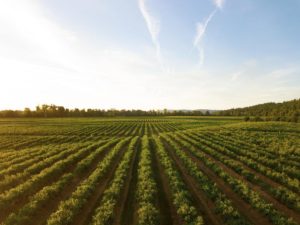Seasonal Agricultural Worker Program

Seasonal Agricultural Worker Program
Seasonal Agricultural Worker Program is a type of scheme of temporary foreign workers program. When Canadians and permanent residents are unavailable, the Seasonal Agricultural Worker Program permits businesses to engage temporary foreign workers (TFW). These companies can engage TFWs from participating countries for a maximum of 8 months, from January 1 to December 15, as long as they can supply them with a minimum of 240 hours of labour in 6 weeks or fewer. The program was initiated because of the rapid development of this sector. Canada's agriculture is advanced, and it is the world's second largest food exporter. It is distinguished by a high degree of marketability, automation, and manufacturing specialization. Agriculture in Canada not only satisfies the food needs of the population but also plays a significant part in the country's overseas commerce, accounting for 11% of total export value. It has some of the world's most productive agriculture, with fast increases in worker productivity. About 5% of the working population is employed, while 30% of farms produce 75% of the overall marketable production. Huge areas of fertile land, favourable climatic conditions contribute to the development of various branches of agriculture. Farms occupy 7.7% of the country's territory. This article will explain all of the nuances of the Seasonal Agricultural Worker Program (SAWP) explaining how foreign people can come and engage the scheme.
To be eligible for the Seasonal Agricultural Worker Program (SAWP) an applicant must meet three criteria. Firstly, a newcomer’s country of origin must be Mexico or the members of Caribbean communities, which are: Antigua and Barbuda, The Bahamas, Barbados, Belize, Dominica, Grenada, Guyana, Haiti, Jamaica, Saint Vincent and the Grenadines, Montserrat, Saint Kitts and Nevis, Saint Lucia, Suriname, and Trinidad and Tobago. The Seasonal Agricultural Worker Program is governed by bilateral agreements between Canada and the nations mentioned above. The arrangements spell out the foreign governments' responsibilities, which include recruiting and selecting temporary foreign workers, ensuring that they have the proper documentation, maintaining a pool of competent employees, and appointing agents to help TFWs in Canada. These governments also guarantee that the individuals who have chosen to work in Canada on a temporary basis satisfy all of the seasonal agricultural worker program’s standards. These prerequisites include having prior agricultural experience, being at least 18 years old, being a citizen of one of the participating nations, and being able to comply with Canadian immigration rules as well as the laws of the worker's home country.

Secondly, specific commodity categories must be produced under the Seasonal Agricultural Worker Program. The full list of products can be found in the national commodity list published on the website.
The third criterion is the work activity must be connected to on-farm primary agriculture, which is defined as the job duties that must be done inside the confines of a farm, nursery, or greenhouse and involves one of the operations from the list. It may be a job in agricultural technologies or treatment of animals (other than fish) to acquire raw animal goods for market collection and their further handling. As an alternative, work may involve planting and harvesting vegetation to place it on the market. Also, the job position must match one of the codes from the National Occupational Classification.
There are specific requirements for employers hiring workers under the Seasonal Agricultural Worker Program. Transportation, housing, working and living conditions are strictly inspected by the Canadian government.
Transportation
Employers must always organize and pay for the temporary foreign employee’s transportation which involves travel between their place of employment in Canada and their home country. Temporary foreign workers can travel by airline, rail, boat, automobile, or bus, among other means. In all jurisdictions, except British Columbia, employers can recoup part of these expenses through payroll deductions. The maximum amount that hiring parties can deduct is specified in the employment contract entitled Agreement for work in Canada under the Seasonal Agricultural Worker Program. For a minimum of six years, employers must retain records of all transportation expenditures paid. Invoices, receipts, airline schedules, tickets, and other documents are examples of records. When applying for an LMIA or an inspection, employers might use these papers as proof.
Besides transporting people from their residence countries to Canada, an employer is in charge of the workers’ day-to-day transportation from work to their accommodation. It must be free and safe.
In addition, employers have a right to transfer TFWs from one farm location to another but the employees must give their consent and permission from both the representative of a foreign government and ESDC Canada must be received.
Housing
Under the Seasonal Agricultural Worker Program, the employers must offer appropriate, acceptable, and inexpensive accommodation to the temporary workers, according to the Canada Mortgage and Housing Corporation's guidelines. Housing might be either on or off the farm. The business owners must guarantee that each unit's occupancy rate does not exceed the maximum permitted rate. They must also make certain that adequate lodging is supplied for all temporary foreign workers. Employers must also guarantee the number of beds per permitted housing unit from the time of arrival to the time of departure.
The hiring side must show documentation that the off-site or on-farm housing has been inspected. The inspection must be carried out by the relevant provincial, territorial, or municipal authorities. The accommodation assessments may also be conducted by a licensed private inspector with the necessary credentials.
In 2018 the officials issued new requirements for obtaining a positive decision. These criteria ensure that the accommodation given to temporary foreign agricultural workers has been examined and that all of the housing inspection report's conditions have been met.
The home inspection report must meet extra criteria such as having all relevant parts filled and indicating the maximum number of workers authorized per approved dwelling. Also, there must be a confirmation that the housing was examined during the past 8 months of the LMIA application's submission. Please note that there are special housing inspection forms for each province and additional requirements may imply.
Insurance
To hire under the Seasonal Agricultural Worker Program, employers are responsible for ensuring that all the foreign nationals are covered by provincial health insurance. As soon as they become eligible, employees must register. On the Ministry of Health web pages for each province, the eligibility for this type of health insurance waiting period is listed.
Employers must pay Great West Life Assurance Company when they hire a workforce from Mexico. The hiring parties can recoup these costs by deducting them from employees' paychecks. Business owners will get information and help from the foreign government's liaison person regarding these deductions.
Where required by law, employers must always guarantee the presence of insurance by a provincial insurance company. Some companies may be able to pick their private insurance under their local regulation. However, the business owners must verify that any private plan chosen offers the same level of pay as the territorial plan (same or greater coverage) and that all workers on the job site are covered by one provider. The hiring parties should contact the provincial workplace safety authorities if they have questions regarding private insurance plan equivalence.
If the business is using chemicals or pesticides, the company owners must notify people they are hiring about that and provide adequate formal and informal instructions, free protective equipment and supervision.

The contract under the Seasonal Agricultural Worker Program
There is a standard of a contract under the Seasonal Agricultural Worker Program. Candidates are not required to submit it in their application. In the event of an inspection, employers must have a copy of the document signed by both the employer and the workers on file. The liaison officer for the foreign government and a foreign worker specified on the LMIA application must also sign the employment contract. Prior to their arrival in Canada, employers do not have to know the TFWs' names. Temporary foreign employees must be given a copy of the employment contract by their employers in English or Spanish and French languages. On the first day of employment, TFWs must sign a copy of the contract.
The employment contract's objective is to define each party's rights and responsibilities. It also helps both sides to make sure that everyone understands and agrees on the working conditions and their duties. If there are any disagreements between the employer and the TFW, the contract will serve as a roadmap for resolving them.
Businesses are required to pay temporary foreign workers the same salary and benefits as Canadian and permanent resident colleagues get in the same occupation. Furthermore, temporary foreign employees operating in trade unions must be paid the pay rate set out in the collective bargaining agreement.
Employers who want to hire non-livestock high-skilled foreign employees temporarily must reference the Streams for High-wage or Low-pay Positions to establish the salary.
Companies are allowed to hire the services of a third-party, a person or organization who may fill out a Seasonal Agricultural Worker Program application on their behalf. Employers who use a third party must pay all fees and comply with all regulations.
In case, if you need help with Seasonal Agricultural Worker Program or any other immigration programs, please contact us directly or fill in application below.

